FusionSolar promotes the safe and high-quality development of rooftop PV systems – PV Tech
Huawei Digital Power APAC has hosted a FusionSolar Smart PV Technology workshop to discuss the importance of safety standards for solar roofs, the event bringing together more than 40 experts from organizations including the ASEAN Centre of Energy (ACE), Engineering Institute of Thailand (EIT), Energy Research Institute of Nanyang Technology University (NTU) Singapore, the Malaysian Photovoltaic Industry Association, TÜV Rheinland and LONGi Green Energy, to explore the latest developments in solar roof technology and emphasize the importance of adhering to safety standards.
Eric Zhong, President for C&I Smart PV & ESS Business at Huawei Digital Power, addressed attendees, commenting:“A notable transformation in the PV field includes the declining costs of PV modules and energy storage systems (ESS), making investments viable across multiple scenarios. Comprehensive systems integrating ESS, chargers and off-grid functionalities are emerging to meet diverse company needs, leading to increased complexity in solutions. Hence, a heightened emphasis on PV industry safety is imperative.”
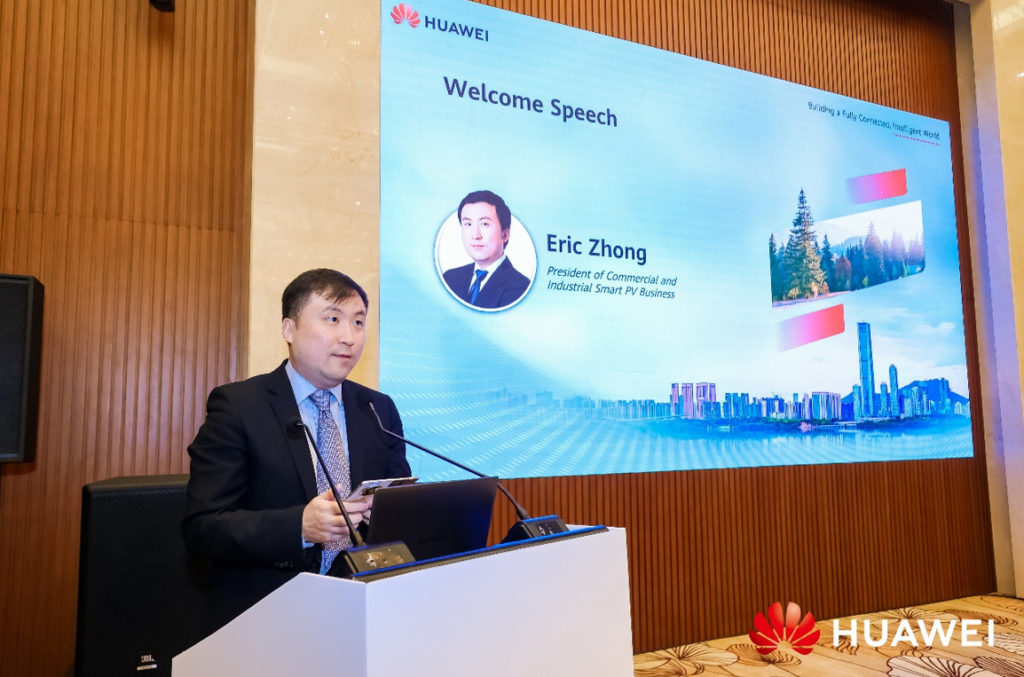
Zhang Qiwei, Huawei Digital Power’s Marketing Orientation Director for C&I Smart PV Business, added that harnessing Huawei’s cutting-edge Smart PV Technology seamlessly combines digital and power electronics innovations, significantly reducing hazardous incidents caused by unstable control systems and improper installation, thereby ensuring a safer and more reliable rooftop PV experience for all. “Ensuring safety throughout the entire PV system is crucial for maintaining rooftop PV safety. Huawei prioritizes this through its C&I PV optimization solution, integrating advanced safety features like SSLD, AFCI, and RSD. This comprehensive approach covers risk points from modules to inverters,”he stated.
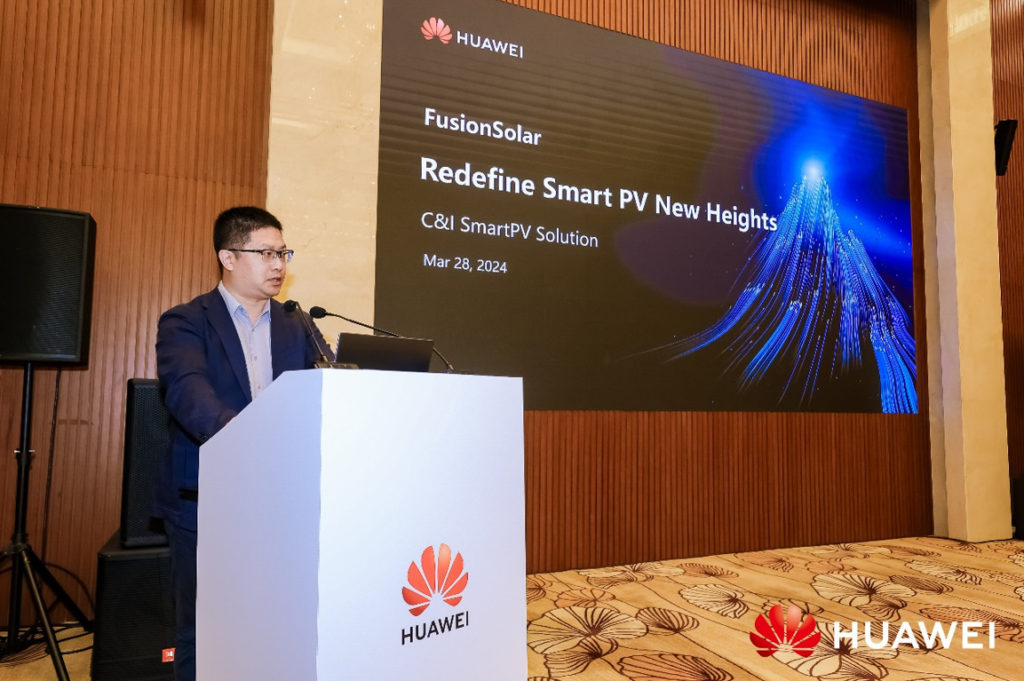
Huawei’s Smart String-Level Disconnector Technology (SSLD-TECH) enables active DC disconnection and precise string-level isolation to ensure the safety and reliability of PV power plants. Huawei FusionSolar’s emphasis on active safety,whereby the AI-powered arc fault circuit interrupter (AFCI) locates arc faults within modules and discerns electrical arc noise, effectively mitigates false alarms and detection gaps to ensure customer safety.
The FusionSolar Smart Module Controllers are equipped with a rapid shutdown function. Each module is linked to an optimizer to monitor its output and the rapid shutdown can be triggered by emergency situations such as a power grid outage or disrupted communication with a remote emergency switch, or can alternatively be manually initiated via the DC switch, ensuring personal, electrical and property safety.
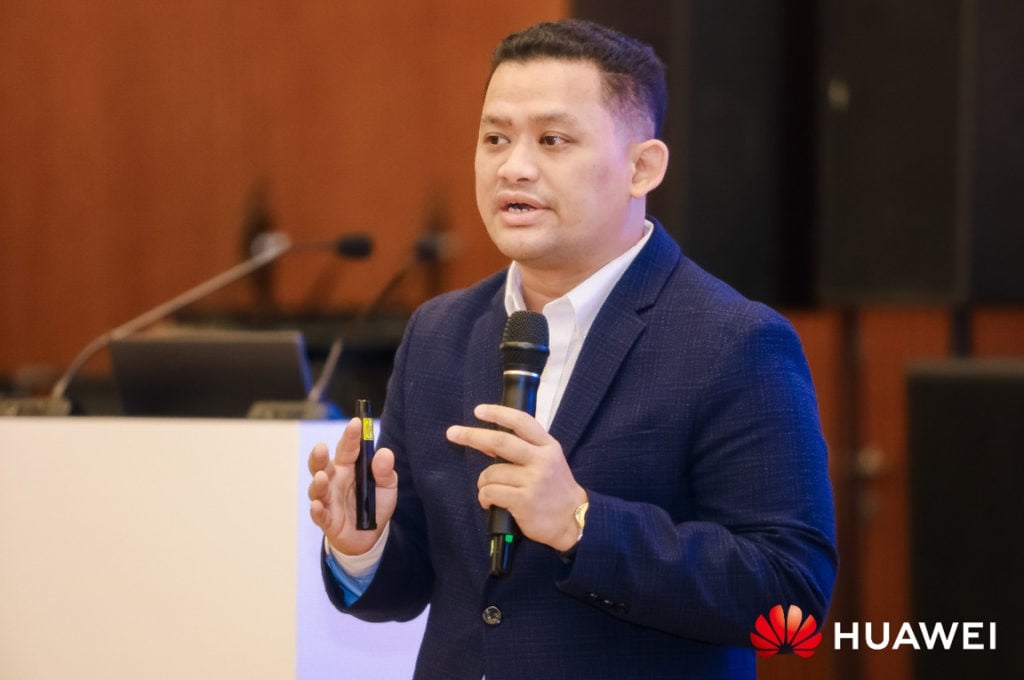
Dr. Andy Tirta, Manager of the Corporate Affairs Department at the ASEAN Centre for Energy delivered a presentation entitled“Empowering Solar PV: Addressing challenges and driving growth across the ASEAN region.” According to ACE projections, solar PV is expected to undergo significant growth, adding approximately 70GW of installed capacity by 2050, which could potentially create some 1 million direct RE jobs, contributing significantly to the region’s workforce within the energy sector.
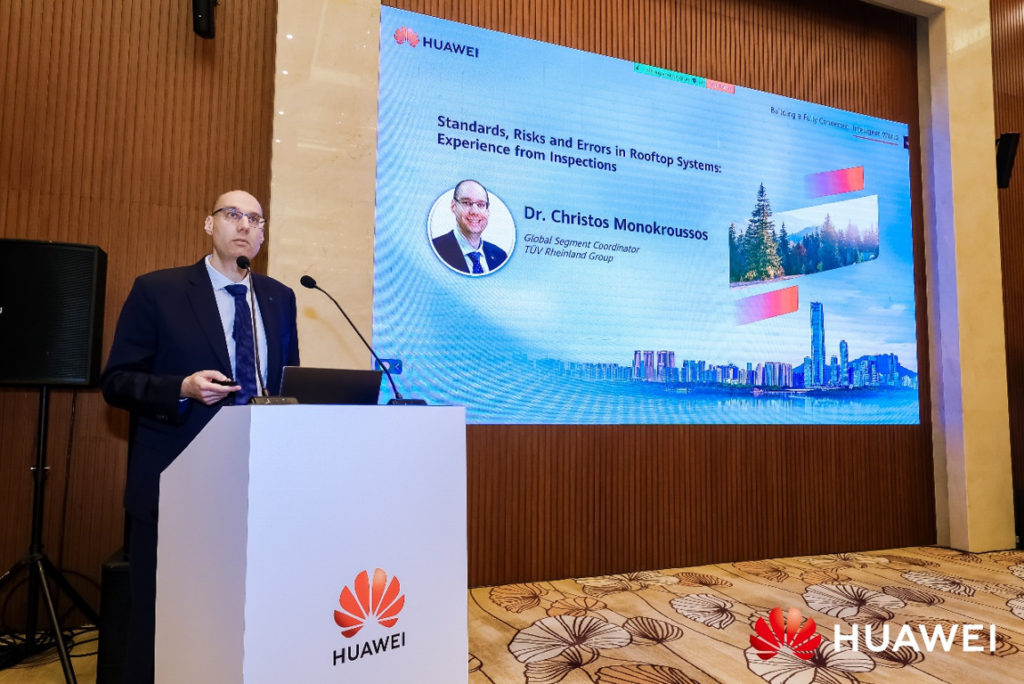
Global Segment Coordinator at TÜV Rheinland, Dr. Christos Monokroussos, shared a presentation on PV rooftop safety and challenges, explaining: “Rooftop PV systems offer space efficiency, but pose safety risks due to neglect of maintenance. Advancing inverter compliance is crucial for improving system performance and safety. A TÜV Rheinland study found 30% of systems had serious errors, with 50% of these being installation-related. Errors included structural analysis, alignment, manufacturer conditions, cable routing and module mounting. Improper handling, serial faults and defects such as delamination can also contribute to reliability risks.”
YAS Dato’ Ir. Ts. Ahmad Izram bin Osman, Deputy Director General (Development) at the Fire and Rescue Department of Malaysia, delivered his own speech on the crucial subject of understanding fire safety on solar rooftops. In his address, he provided attendees with a comprehensive understanding of the risks, challenges and preventive measures essential for maintaining a secure and hazard-free environment. “Using standardized equipment, design and installation is crucial for minimizing safety risks associated with rooftop solar panels. Proper fire safety measures and protection systems are essential for safeguarding lives and property. Fighting fires involving PV solar panels requires extreme caution due to potential added hazards,” he concluded.
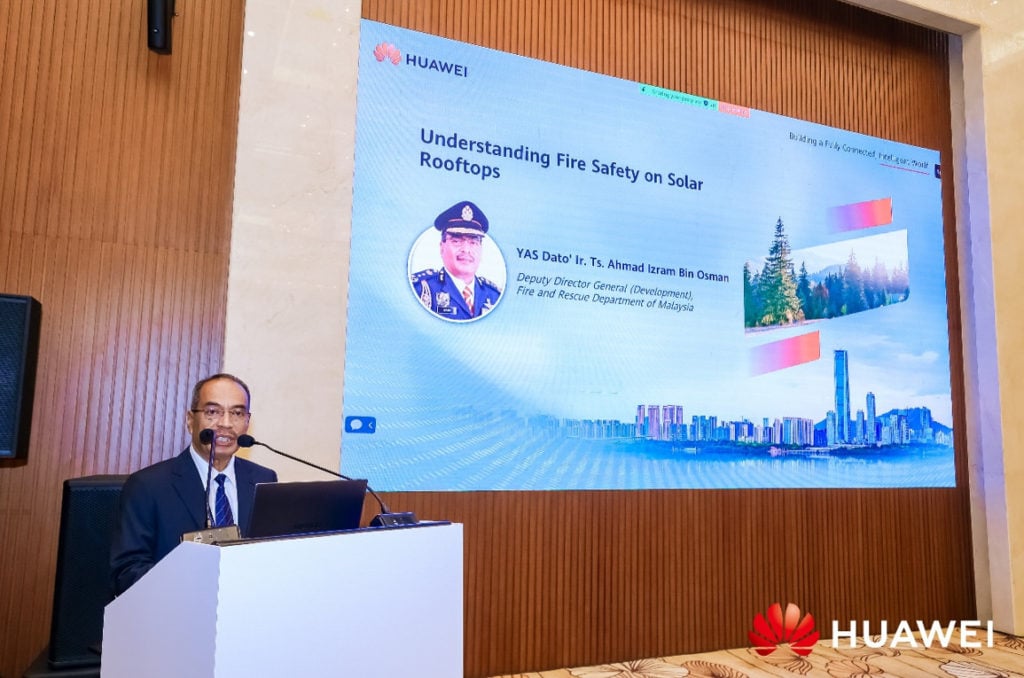
The workshop facilitated knowledge exchange, sharing of best practices and discussions on addressing challenges and seizing opportunities in the rapidly evolving solar industry, its overriding message being that, together, we can harness the power of smart PV technology to create a greener planet for generations to come.
This post was originally published on 3rd party site mentioned in the title of this site


